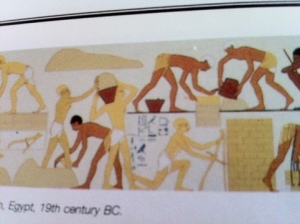When I was a kid I was in awe of my parents and grandparents who had the privilege of fasting on Yom Kippur.
“Believe me,” said my grandfather, “it’s no privilege.”
But I knew he was just being modest. To me, fasting was an activity that adults got to do, like driving or going to work instead of school. I remember how my grandmother used to prepare for a whole day of atonement. “I bring a sweater to shul. You always feel cold when your stomach is empty.” My mother would also have only the highest reverence for Yom Kippur, and every year would deny herself her morning honey cake. “But the coffee is not negotiable,” she would say. “I don’t want to get a headache.” And my father would always say, “I feel better when I don’t eat,” a statement that always won him a lot of friends when he repeated it in the crowded temple throughout the day.
Then I turned 13 and at last had the privilege of fasting on Yom Kippur.
“Make sure you don’t eat too much the day before,” my father said to me. “You’ll get an enlarged stomach. It’ll think more food is coming on Yom Kippur and then you’ll get sick.”
Knowing that part of being a teenager was ignoring your parents’ advice, I stayed true to my age and the day before Yom Kippur I gorged myself on three times my usual diet of cereal, bread, and cookies. I figured that if a gluttony could get a hibernating bear through the winter, the same approach could get me through the Day of Atonement. And I had plenty of time to reflect on that logic while I was dry heaving in the mens’ room, my prayer shawl hanging on a hook in the hallway, while upstairs someone chanted the story of Jonah being swallowed by a whale that obviously did not have the privilege of fasting that day.
The following year I was smarter. I did not gorge myself the day before, but ate sparingly so that my stomach would shrink. I sat through the whole Yom Kippur service, allowing the lightheadedness to enhance the spirituality and bring the fast-breaking buffet that much more quickly.
“Be careful when you break the fast,” my father said. “Take little bites and see how each one goes before taking another. Your stomach is too small to handle the usual portions.”
Knowing that my father was just kidding, as soon the sun went down and I was inscribed in, as it turned out, the Book of Life, I raced home and inhaled two blintzes and a bagel before I even one arm out of my high holiday jacket. And as I took the other arm out I was racing upstairs to the bathroom where I got a second look at the blintzes and bagel.
The following Erev Yom Kippur I didn’t gorge myself and I didn’t starve myself. I ate my normal diet and went to temple and focused my full attention on atoning for my sins of the previous year and how I was going to be a better person in the coming year. So immersed was I in God’s glory that I did not think of food at all. And at a certain point in the service, I looked over to my mother, and made a signal, and without a word we went outside, and got in the car, and drove to a bagel shop that was out of the way so that we would not run into anyone from the temple. My mother stopped the car in the front, let me out, and then she drove around again, giving me enough time to scope out the bagel shop out and see if there was anyone from the temple before they could see me.
“Coast looks clear,” I said when she came around again. We confirmed with the proprietor that there was a back door exit, and then took a table near the front so that we could see who was coming in before they could see us.
And when we were done we returned to the temple, checked our teeth in the vanity mirror, and took our seats among the congregation praying fervently for forgiveness.
